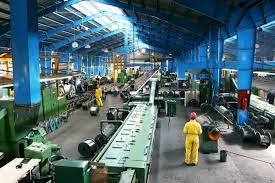
Tools have played an indispensable role in shaping the course of human civilization, enabling us to overcome challenges, create intricate structures, and push the boundaries of innovation. From the rudimentary implements of our ancient ancestors to the cutting-edge technologies of today, the evolution of پین رزوه دار has been a testament to human ingenuity and adaptability.
In the realm of construction, tools have been pivotal in transforming architectural dreams into tangible realities. The symphony of hammers, saws, and drills resonates across construction sites, where workers rely on these tools to fashion towering skyscrapers, intricate bridges, and resilient infrastructure. With advancements in technology, tools have become more sophisticated, introducing robotic arms and 3D printing that promise to revolutionize the industry, enhancing efficiency and precision.
The medical field stands as another testament to the transformative power of tools. Surgeons wield intricate instruments with unparalleled precision, enabling life-saving procedures that were once unimaginable. Diagnostic tools, from stethoscopes to sophisticated imaging machines, empower healthcare professionals to delve into the complexities of the human body, aiding in early detection and accurate treatment of ailments.
In the digital age, the concept of tools has expanded beyond the physical realm. Software tools have emerged as the backbone of industries ranging from graphic design to data analysis. Coders harness the capabilities of integrated development environments (IDEs) to craft intricate lines of code, while data scientists wield powerful analytical tools to decipher trends and extract insights from vast datasets.
Educational landscapes have also witnessed a profound shift thanks to tools. Interactive e-learning platforms, virtual reality simulations, and online collaboration tools have democratized education, allowing learners worldwide to access knowledge and skill-building opportunities like never before.